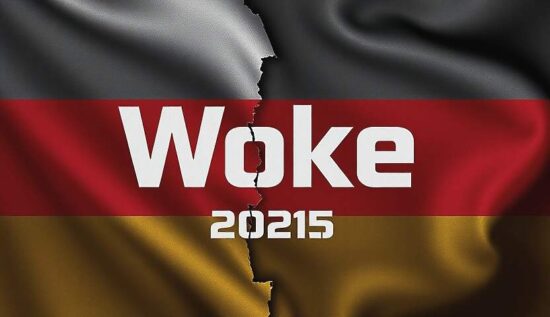As the federal election approaches, a conservative shift is on the horizon. This shift will put the developments of the last decades to the test and in some cases, even reverse them, in numerous policy areas such as immigration and migration, globalization and international networking.
Moreover, a moral shift is also on the horizon. The last legislative periods were dominated by the Wokeness, identity politics and the focus on LGBT issues.
With the election campaign, the time has come to remind ourselves of what was introduced, changed and imposed in Germany in the first two decades of the 21st century. Many voters think that the Greens are the party of the politically cultivated Wokeness. In retrospect, it becomes clear that this is not the case. The Greens are a strong driving force, but they are not the only ones.
At the beginning of the new millennium, the first red-green government in 2001 passed the life partnership law. From then on, same-sex couples had the opportunity to register their partnership. The CDU demanded loudly at the time that a same-sex life partnership should not be equated with marriage.
This demand was later dropped by the CDU in 2017. The registered life partnership was replaced by marriage for all. For the vote on the law, the whip was lifted and the MPs were only bound by their conscience and they voted in favor of it. However, it is questionable whether the federal citizens would have voted in favor of it in a referendum. In countries where similar regulations were decided through referendums, the majority voted against it. The exception is Ireland, where the majority of the citizens voted in favor of queer marriage in 2015.
During the vote in the Bundestag, 75 MPs of the CDU also voted in favor of the law, although the majority of the party remained conservative and voted against it. The Chancellor at the time, Angela Merkel, was also among the opponents. The marriage for all could take effect.
A year later, the term “divers” was introduced as an option for the gender entry. Since then, all job advertisements must be marked with (m, w, d). This regulation is hard to explain abroad, but it can be well used as a joke.
These measures did not have a significant impact on the target groups. In 2019, 18 years after the introduction of the life partnership law, there were around 34,000 registered life partnerships. The predicted rush to the registry offices did not occur. The problems regarding inheritance law and medical confidentiality, which mainly affected gay couples, were solved by the life partnership law, but it came too late, as the AIDS crisis, which mainly affected gay men, was already over by the end of the 1990s, thanks to new therapies.
At a wedding, it is not even raised whether it is a same-sex marriage. It is therefore not possible to say how many same-sex couples make use of the opportunity to get married. A real problem was not solved with the law. It was about a diffuse feeling of disadvantage. The problem was never pressing.
It is possible to precisely count the number of people who identify as “divers”. As of May 2022, there were 969 people. The law was made for a group of people that statistically does not exist. Even today, it would be hard for most Germans to explain what “divers” actually is. The law solved a problem that did not exist.
In 2024, the Self-Determination Act was passed, which created more problems than it solved. It replaced the Transsexuals Act of 1980, which regulated the change of gender and was explicitly “for special cases”. With the Self-Determination Act, the bureaucratic process was significantly simplified. It is sufficient to submit a declaration to the registry office. Transsexuality is made a trendy mass phenomenon.
The justified criticism of the law is that it opens the door to abuse. The criticism is international and it comes from the UN, among others. The supporters of the law still consider it a model and a beacon, but this is not the case internationally. But even here, it is true that if you tell this to your friends abroad, you will have the joke on your side.
The Gay Pride parades, known as CSD in Germany, have not only become larger but also more numerous in recent decades. Not only Berlin, Cologne, Hamburg and Munich invite once a year to confess to diversity, tolerance and a colorful society. Even cities like Regensburg, Potsdam, Olpe and Pfaffenhofen now offer the opportunity for a confession. The Gay Pride parades have become completely depoliticized. In 2016, the motto of the Berlin CSD was “Danke für nix” and brought the entitlement mentality of the LGBT movement to the point.
For a while now, the rainbow flag has been waving not only in front of supermarkets and furniture stores, but also in front of government and ministry buildings. Whoever still believes that it’s about minorities has not understood the elementary connections. The LGBT movement is now just a mass.
The foreseeable shift in development will therefore likely have positive effects on the movement. If the funds dry up because the big companies no longer participate in their diversity programs, don’t show up at the Gay Pride parades and are no longer willing to spend vast sums for a presence there, it will serve as a wake-up call. If queer goes out of fashion, the ones who the political fight for the rights of minorities is not a decoration but a genuine concern will be left behind. They will then be able to show real solidarity again.
The LGBT movement is facing a salutary shock. This is good, because its connection and entanglement with politics and the media, combined with the urge to constantly demand new laws to regulate problems that do not exist without a law, has led to an overload of society. The majority has had it with the colorful opus and the demand for special treatment against society. The German society has, in the face of the decline of the German economy, more pressing problems than the question of which pronoun to use in front of whom.





